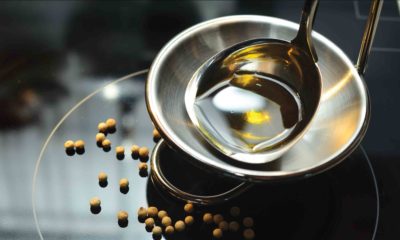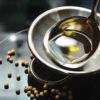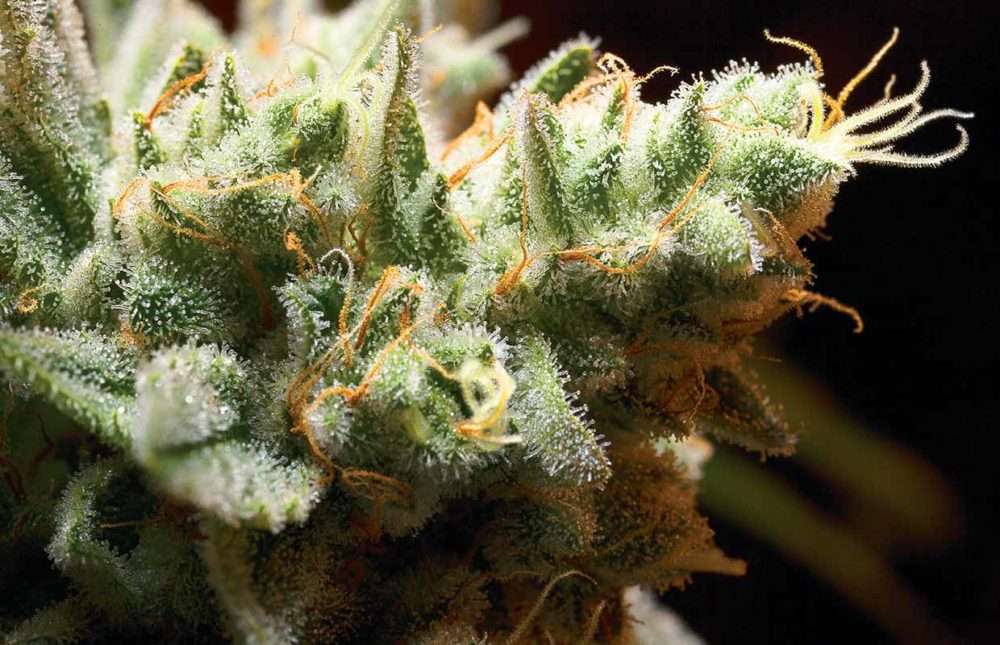
Hemp
What Does Hemp Legalization Mean for Selling CBD?
The federal government has legalized hemp, opening up the market for CBD, CBG and beyond.
As 2018 drew to an end, the cannabis industry faced a seismic change: Congress had passed (and President Trump had signed) the 2018 Farm Bill, thereby legalizing hemp — defined as cannabis with less than 0.3 percent THC. Cannabis reporters’ inboxes filled up with statements from industry folk “celebrating” and “applauding” the federal government for removing industrial hemp from the list of federally controlled substances. They were mostly celebrating one thing: the cannabinoid CBD now had a path to mainstream legality.
Despite hemp’s murky legal status before the Farm Bill, CBD has become a huge health-and-wellness trend, popping up in coffee shops, cocktail bars and health-food stores all over the country. The hemp-CBD industry ballooned to $590 million in 2018, according to Bethany Gomez, director of research for the Brightfield Group. Hemp farmers can earn $200 to $400 an acre if their crops are going into textiles, building materials and plastics. But crops heading towards CBD extraction can fetch thousands of dollars per acre, reported the Wall Street Journal.
So what does hemp legalization mean for cannabinoids such as CBD being treated as a commodity?
Unfortunately for some hemp operators, the Farm Bill wasn’t immediately the miracle legislation that they’d hoped for. After the bill’s passage, as the Department of Agriculture continues to craft the rules around hemp, business owners have seen their CBD products confiscated by U.S. Food and Drug Administration officials and their hemp shipments seized by law enforcement for crossing state lines. The FDA has insisted that CBD is a drug, and therefore illegal to add to other products without FDA approval. While the industry continues to grow, it’s still unclear how the federal agency will manage the disconnect between CBD as a federally regulated drug and a thriving industry that views the non-intoxicating cannabinoid as a dietary supplement.
A lack of clarity hasn’t stopped traditional retailers from jumping into the space, with both DSW and Neiman Marcus announcing in January that they would start stocking CBD cosmetics. The CBD trend is only poised to grow as mainstream companies get in on the action. But it isn’t only CBD: hemp plants can produce other cannabinoids, too.
The Other Players in the Entourage
The CBD trend will “absolutely 100%” extend to other cannabinoids, said Cristina Buccola, an attorney who has worked with marijuana and hemp companies. “There’s already a commodification of other cannabinoids, including CBG and CBDV… As more people get educated and as research avenues open up — it’s just a matter of time.”
Indeed, cannabis businesses are already developing ways to produce minor cannabinoids in greater quantities, hoping to harness their (still little-researched) therapeutic properties. Companies like Ebbu, which was acquired by Canadian cannabis giant Canopy Growth last October, see a future in which the cannabis market will be dominated by isolated cannabinoids. Other companies are looking to produce cannabinoids without the help of cannabis, such as growing them on genetically edited yeast.
The proposition is sure to cause consternation among cannabis consumers who tout the entourage effect of the cannabis plant. But for a more cannabis-naïve consumer, the promise of consistent formulations could be an attractive selling point. Then there’s the pharmaceutical industry, which has long been isolating compounds from plants to turn them into drugs.
Pharma companies have already developed an interest in other cannabinoids. In February 2018, the FDA gave orphan drug status to a cannabigerol (CBG) derivative produced by Emerald Health Pharmaceuticals for treating Huntington’s disease. Across the pond, the European Medicines Agency gave orphan drug status for cannabidivarin (CBDV) to GW Pharmaceuticals, the company that also produces the first FDA-approved CBD drug in the U.S.
THC’s Status in the Cannabinoid Market
Given that industrial hemp can produce all these minor cannabinoids, where does that leave the much-appreciated THC? After all, there’s no meaningful difference between marijuana and industrial hemp plants, as they are now legally defined, using the arbitrary designation that hemp contains less than 0.3 percent THC. Researchers and businesses alike will find it easier to work with industrial hemp, and may choose to focus their efforts there until the feds fully legalize cannabis. But there’s definitely a long way to go before cannabinoids are truly a commodity.
If the U.S. repeals cannabis prohibition, there are other countries to contend with. Recently, narcotics officers raided a beauty supply store in Singapore, confiscating a bunch of mascara. The offense? The mascara contained oil derived from hemp seeds. Has anyone told the Singaporean authorities that the stuff won’t get you high?
“We’re still overcoming the stigma of cannabis in so many ways, including educating people about THC and industrial hemp, and eliminating concerns about ‘getting high,’” said Buccola, who demurred when asked to prognosticate about the future of the marijuana and hemp markets.
“I don’t think we can even put our arms around what that looks like because there are so many layers of prohibition and misinformation to peel back before we can understand the potential of either market.”
TELL US, do you choose products based on their cannabinoid profiles?
Originally published in print edition of Cannabis Now. LEARN MORE






















